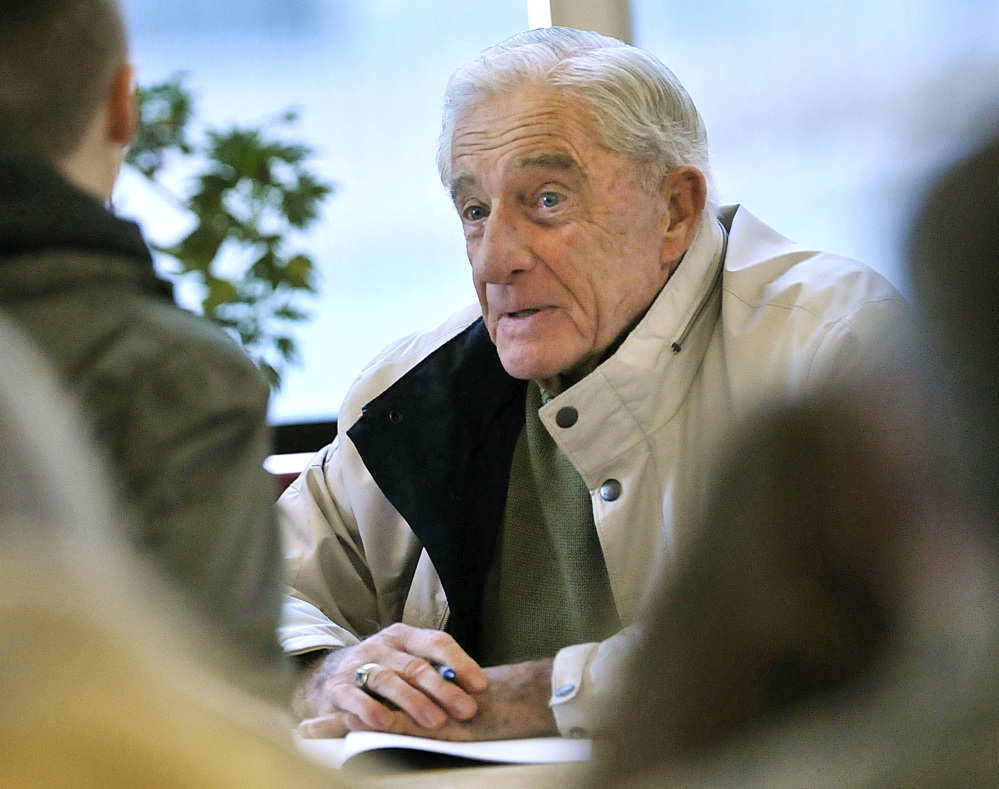In a time when we wouldn’t think of climbing Mount Katahdin without sturdy boots, fleece apparel, maps and freeze-dried food, it’s staggering to think that a 12-year-old boy weathered nine days on Maine’s highest peak with no shelter or food. That was Donn Fendler’s experience in 1939. And his death Monday at the age of 90 brings to a close a life well lived, on the mountain and off.
The basics of Fendler’s account are familiar: He became separated from his family near the summit of Katahdin, walked off into the fog and got lost.
Drawing on his Boy Scout training, he followed a small stream toward what he hoped would be a settled area. The boy eventually came out at a hunting camp on the East Branch of the Penobscot. But it wasn’t an easy trek – he walked 48 miles and lost 16 pounds, suffering scratches, bruises and bites from clouds of black flies and mosquitos.
Over the years, Fendler told his story – recalled in “Lost on a Mountain in Maine,” a short book he wrote with Joseph Egan – to many Maine schoolchildren, and the value of determination and resilience was at the heart of it.
“I tell every one of them they have something inside them they don’t know they have,” he said in a 2011 Associated Press interview. “When it comes up to a bad situation, they’re going to find out how tough a person they are in the heart and the mind – it’s called the will to live.”
By all accounts, Fendler, who would go on to marry, raise a family and serve 30 years in the military, never tired of visiting schools and libraries to talk to young people about his Katahdin odyssey (he and his wife divided their time between central Maine and Tennessee). What’s more, Fendler was genuinely interested in hearing their stories, too, and wrote back to every child who ever wrote to him, according to Ryan Cook, who’s directing a movie adaptation of “Lost on a Mountain in Maine.”
Though most of us won’t face the same challenges that Fendler confronted in the wilderness, his experiences offer a lot of wisdom to people of all ages about how to deal with tough times: Keep your head. Listen to your instincts. It’s OK to cry – it can help you clear your mind. When you least expect it, something or somebody will come along and and give you the strength to go on.
Donn Fendler is no longer with us, but his legacy will survive as long as there are people who are inspired by adversity to reach out to and strengthen their connections to others.
Send questions/comments to the editors.


